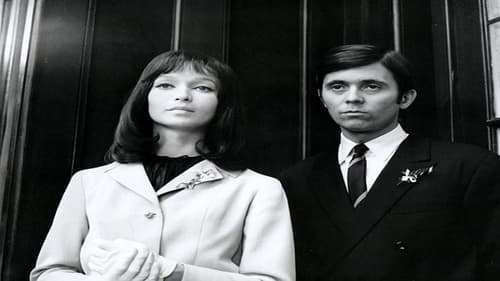
More than twenty years after the Second World War, a mining engineer named Fischer is revealed as a former member of the Gestapo, Karel Kraus. He is sentenced for murder to eight years in prison and now works with other prisoners on the renovation of the Convent of St Agnes of Bohemia in Prague. Then a car with a foreign registration begins to park regularly close to the construction site. Its crew, a man and a woman, contact the construction foreman, who probably would not reject a bribe offer to perform some service. The prisoner Bicík is appointed to work with Kraus; Bicík gives him a message from Kraus' brother Bert, who lives abroad, that he wants to help him escape.

A verger, who likes to dress as a priest, is invited, by one of the villagers, to be the pastor at a vacant church. The atheist teacher resents the pastor, and tries to embarrass him in various ways, including being caught with the local girl, Majka.

At the year 1946, the time of the Nuremberg Process. One of the main actors of the Second World War, who reportedly committed suicide, Adolf Hitler is, however, missing. The Czech doctor Herman (Karel Höger) is kidnapped from Prague and driven to the sanatorium of Professor Rolf Harting (Jirí Vrstála). The sanatorium is a disguised military stronghold, most probably occupied by a Nazi garrison, with prison cells and an execution chamber in the basement. At night, Herman is taken to a patient in whom he, to his horror, recognizes Hitler (Fritz Diez).

A beautiful, underachieving, 18-year-old orphan considers various suitors, ponders philosophy, and takes a young girl under her wing.

The protagonist (Rudolf Hrusinsky) is a dull, fat, shy government clerk indulging in voyuerism and ego fantasies. In love with another clerk (Kveta Fiolova), he is urged on in his pursuit by a commiserate executive. The story is told in a flashback sequence as the cuckolded Hrusinsky attempts suicide by gassing himself in his bathtub. The "Murder" of the title is not a murder as such, rather the murder that Hrusinsky remembers planning upon discovering his wife's unfaithfulness with his supposed friend and advisor. Both plots failing in his mind, he loses himself in fantastic reveries of his funeral and of hypocritical mourners. ' Deciding (perhaps) that this is not the way out either, he gives up the attempt and imagines a life of reconciliation and eventual affluence.




